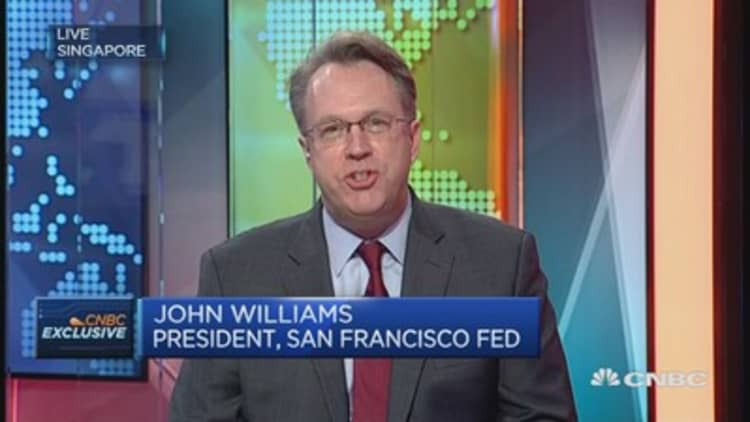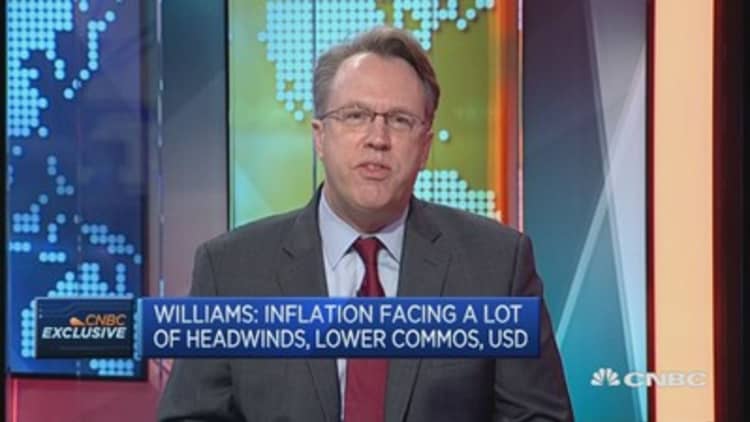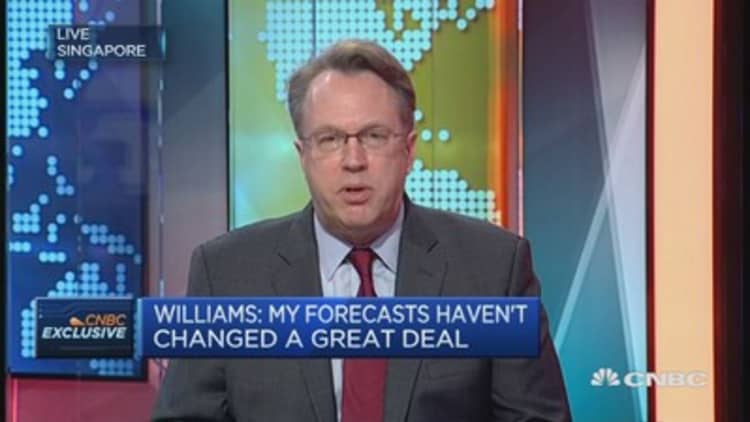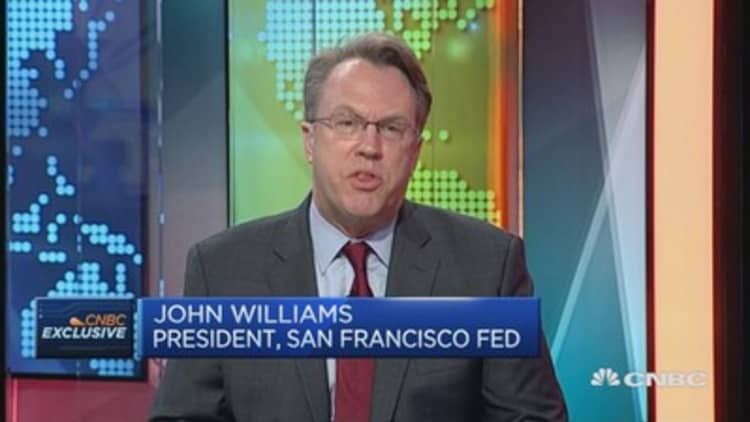



A member of the U.S. central bank's monetary policy committee told CNBC he believed global developments are preventing the world's largest economy from returning to normalized interest rates.
John Williams, President & CEO of the Federal Reserve Bank of San Francisco, told CNBC on Monday that the U.S. economy was doing "quite well," pointing to stable inflation and strong employment growth.
"The real issue is the global financial and economic developments, there's uncertainty about what's happening around the world and how that feeds back to the dollar and the U.S. economy," he told 'Asia Squawk Box.'
Williams serves on the Federal Open Market Committee but is not one of the voting members.
He reiterated that the central bank's policy decisions would remain data dependent, singling out inflation as one of the Fed's top concerns.
"We've been missing our 2 percent inflation goal for three and a half years or so, global disinflationary factors are still holding inflation down...The data to me isn't so much about the labor market continuing to improve, I'm very positive on that, it's more about inflation moving back to 2 percent in the context of very strong headwinds," he explained, citing the strong dollar and low commodity prices.
"We have a domestic mandate...but that said, we understand that we're in a global economy so what happens in Brazil or China has a huge impact on the U.S. in terms of our inflation and employment goals."
Unlike in Europe and Japan however, slow inflation won't push the Fed to introduce a negative interest rate policy (NIRP), Williams noted, adding that the U.S. has other policy tools at its disposal, including quantitative easing and forward guidance.
"We're in a very different situation where we''ll be raising interest rates over the next few years and we're in much stronger economic position [than Europe or Japan] so it's not a tool that I see us using."
His remarks come as global markets seek clarity from Federal Reserve officials for clues on whether the central bank will hike rates at its April policy meeting.
Expectations of an increase have risen following hawkish commentary from several members of the Federal Open Market Committee (FOMC) last week, including Williams.
Atlanta Fed President Dennis Lockhart and Williams both believe a hike during the scheduled April 26-27 review is warranted, while St. Louis Fed President James Bullard said "the next rate increase may not be far off."
The comments spooked Wall Street however, as it contradicted Fed Chair Janet Yellen's dovish-sounding statement earlier in March.
When asked about the mixed policy messages, Williams insisted that the FOMC was united in its vision.
"I would say there's broad agreement on the committee that our basic strategy, which is to gradually remove policy accommodation and raise interest rates over the next couple of years, has strong support. The real question is when we should raise rates, what pace we should raise rates. That's going to be driven by the data so we'll have to wait and see."
Markets will now be paying close attention to Yellen's speech at the Economic Club of New York on Tuesday as well as FOMC Vice Chairman's William Dudley's address on Thursday for further hints on the central bank's outlook.
Friday's employment report will also be scrutinized for proof of the economic recovery. Societe Generale expects at least 24,900 jobs were created in March, which would mark an improvement from February's 24,200.
Correction: This article has been updated to correct that Dudley is vice chairman of the FOMC. It also clarified that Williams is not a voting member of the FOMC.


